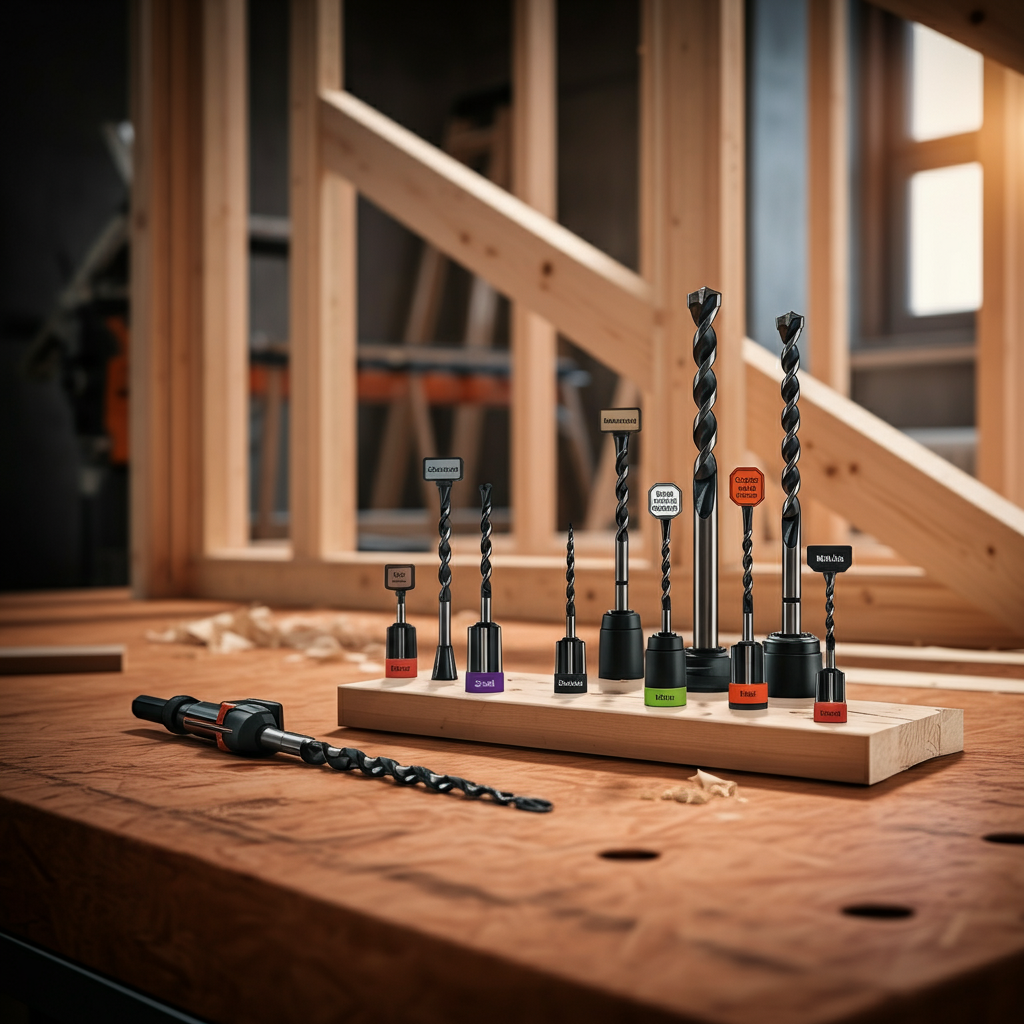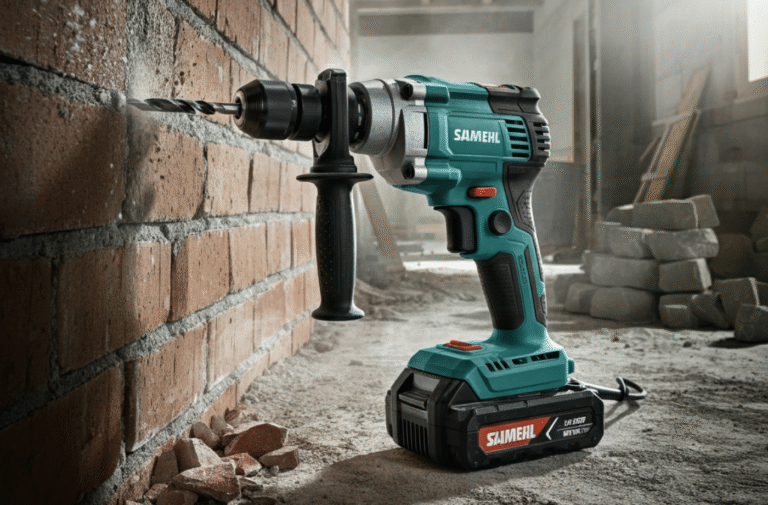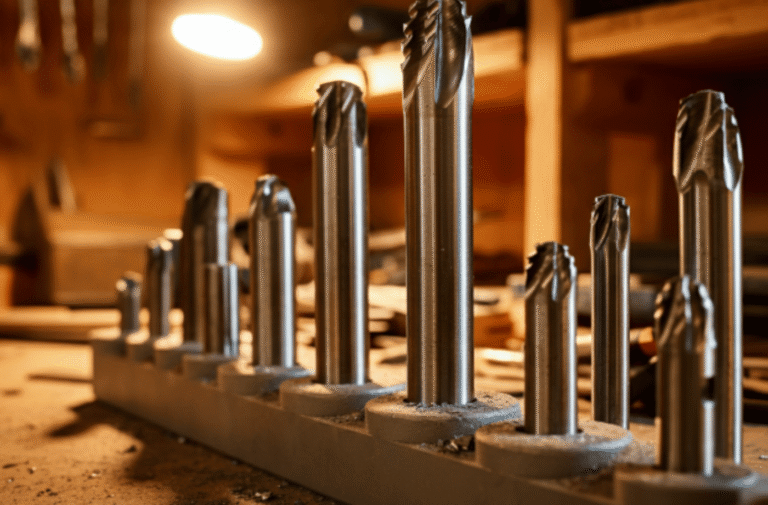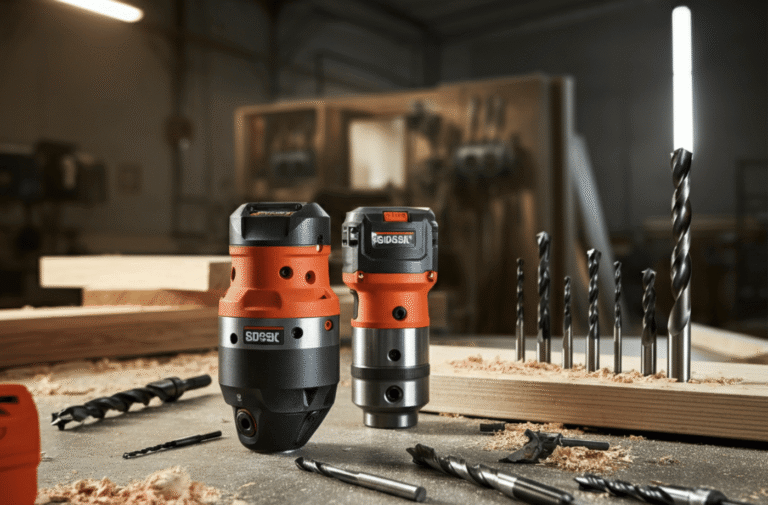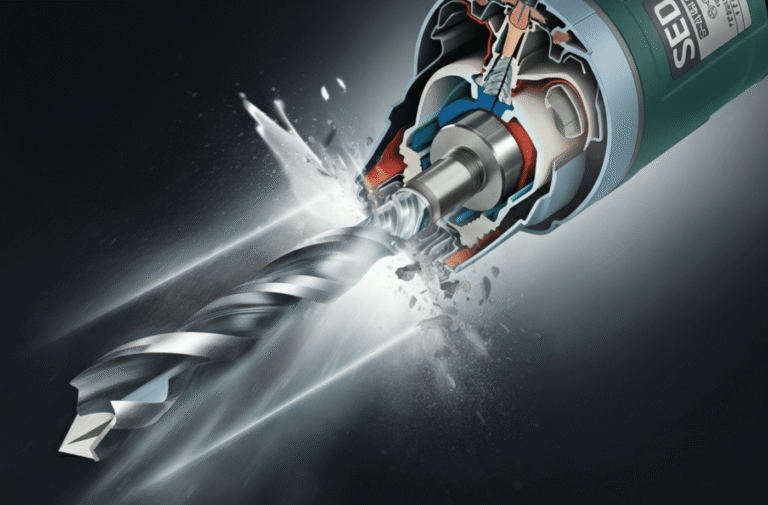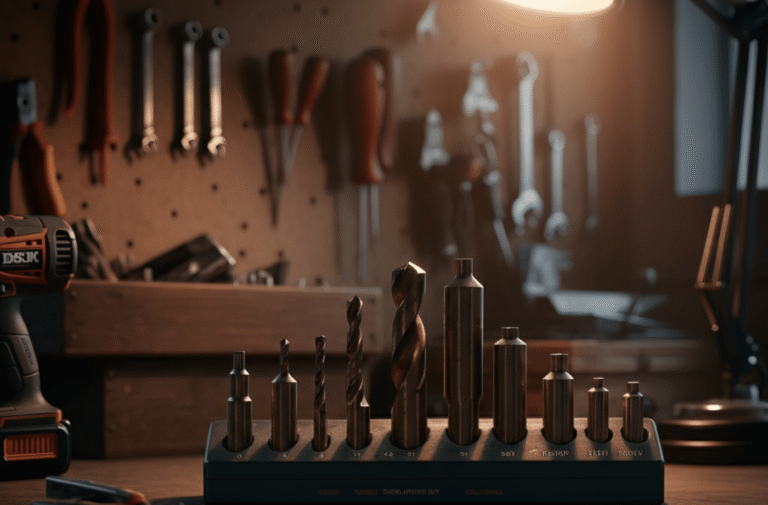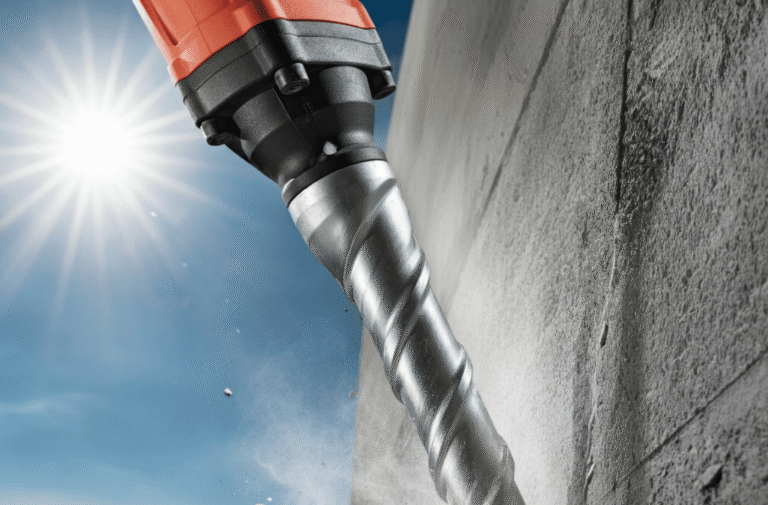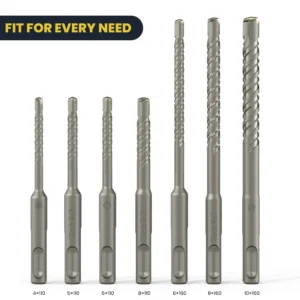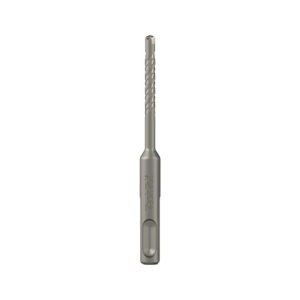When it comes to tackling projects that involve drilling into tough materials like concrete, stone, or masonry, having the right SDS drill bit can make all the difference. But with so many types, sizes, and features available, how do you know which one is right for the task at hand? If you’ve ever stood in the tool aisle wondering which drill bit to buy, you’re not alone.
This guide will walk you through everything you need to know about SDS drill bits, from understanding their design and functionality to choosing the perfect one for your project. Whether you’re a seasoned DIY enthusiast or just starting, you’ll leave here with the confidence to make an informed decision.
What Are SDS Drill Bits, and Why Are They Special?
SDS drill bits, short for “Slotted Drive System” or “Slotted Drive Shaft,” are a game-changer when it comes to power and precision in drilling. These drill bits are specifically designed for use with SDS rotary hammers and feature a unique shank that locks into the drill chuck securely.
But what makes them so special? Here are a few standout features:
- Exceptional Durability: SDS drill bits are built to handle high-impact tasks without wearing down quickly.
- Efficient Hammering Action: The slotted shank system allows the bit to move back and forth while rotating, which delivers powerful blows ideal for tough materials.
- Quick and Secure Fit: Unlike traditional drill bits, SDS bits snap into place, so there’s no slipping or tightening required.
This design ensures precision, stability, and ease of use, making them the go-to choice for heavy-duty drilling tasks.
When Do You Need an SDS Drill Bit?
Before selecting an SDS drill bit, it’s important to assess your project. Are you drilling into hardwood or drywall? Standard drill bits might suffice. But if your job involves
- Concrete wall mounting,
- Breaking through hard masonry,
- Installing anchor bolts in stone, or
- Creating passage holes in concrete structures,
then SDS drill bits are what you need. They’re specifically engineered for these heavy-duty tasks, offering both power and reliability.
Types of SDS Drill Bits
Not all SDS drill bits are created equal. When choosing the right one, it’s crucial to understand the different types available and their uses.
1. SDS-Plus
SDS-Plus drill bits are the most common type, perfect for light to medium-duty jobs. They have 10mm shanks and are compatible with smaller SDS drills, making them ideal for:
- Brickwork,
- Light concrete drilling,
- Fixings and smaller holes.
SDS-Plus bits are your go-to for regular home improvement tasks that require drilling into masonry or concrete but don’t need heavy-duty power.
2. SDS-Max
For large, professional-grade projects, SDS-Max drill bits are the superstars. Designed for heavy-duty tasks, these bits are compatible with larger rotary hammers and feature an 18mm shank. They’re well-suited for:
- Demolition jobs,
- Drilling large-diameter holes,
- Hard concrete and stone work.
If you’re driving rebar or breaking through thick concrete structures on a construction site, SDS-Max is what you’ll need.
3. SDS-Top
Although less common, SDS-Top sits between SDS-Plus and SDS-Max in terms of size and power. They are typically used in Europe for medium-duty tasks; however, they’re not as widely available in the US.
4. Specialty SDS Bits
Some jobs may require special-purpose SDS drill bits, including:
- Chisels for breaking or chipping away stone and concrete.
- Core Bits for drilling wide holes, such as for pipes and conduits.
- Auger Bits for making deep holes in wood and other softer materials.
Knowing the task you’re tackling will help determine the best bit for the job.
Factors to Consider When Choosing an SDS Drill Bit
Now that you understand the different types of SDS drill bits, it’s time to focus on the key factors that will influence your choice.
1. Material
What are you drilling into? Different drill bits are optimized for specific materials:
- Masonry and Concrete require carbide-tipped SDS bits for withstanding the hammering impact.
- Steel and Metal demand SDS drill bits with hardened tips that resist overheating.
- Wood needs bits designed with a less aggressive cutting edge to prevent splitting.
2. Size and Diameter
The diameter of the SDS drill bit is crucial to achieving the desired results. Sizes typically range from 4mm to over 50mm. Larger diameters are used for wide holes, such as those needed for anchors and pipes, while smaller bits are perfect for finer jobs.
3. Length
Consider the depth you need to drill. SDS drill bits come in varying lengths, from short bits for shallow drilling to extra-long bits for deep structural work. Make sure the bit length matches the material thickness.
4. Compatibility
Not all SDS drill bits fit every SDS drill. Ensure that your drill and drill bit are compatible—for example, SDS-Max bits don’t work with SDS-Plus rotary hammers.
5. Coatings
High-quality SDS drill bits often come with additional coatings, such as titanium or cobalt, to reduce heat buildup, improve drilling speed, and extend lifespan.
Tips for Maximizing SDS Drill Bit Performance
Even the best drill bits need proper handling to perform at their peak. Here are some handy tips:
- Use the Right Drill Setting: Make sure your rotary hammer is set to the correct mode (hammer-drill, drill-only, or chisel mode) for the bit and material.
- Minimize Overheating: Overheating can weaken the drill bit’s tip. Take breaks and allow the bit to cool during heavy jobs.
- Keep It Sharp: Regularly inspect your drill bits for wear and tear. A dull bit will slow down your work and reduce precision.
- Pair with Anchors when needed for added stability, especially in concrete.
Why Investing in Quality Matters
When choosing an SDS drill bit, quality should be a top priority. High-quality bits may cost more upfront, but they’ll save you money and frustration in the long run by offering:
- Better Precision,
- Faster Drilling, and
- Greater Durability.
Brands like Bosch, Milwaukee, and DEWALT are known for producing excellent SDS drill bits that perform reliably, even under demanding conditions.
Make an Impact with the Right Tools
Choosing the right SDS drill bit is the first step to ensuring your project runs smoothly. Armed with this guide, you’re ready to tackle any tough drilling task with confidence.
Need guidance on SDS drill bits for your DIY or professional project? Reach out to our team of tool experts or visit our store to explore a complete range of high-quality bits. Your next project deserves the best tools!

